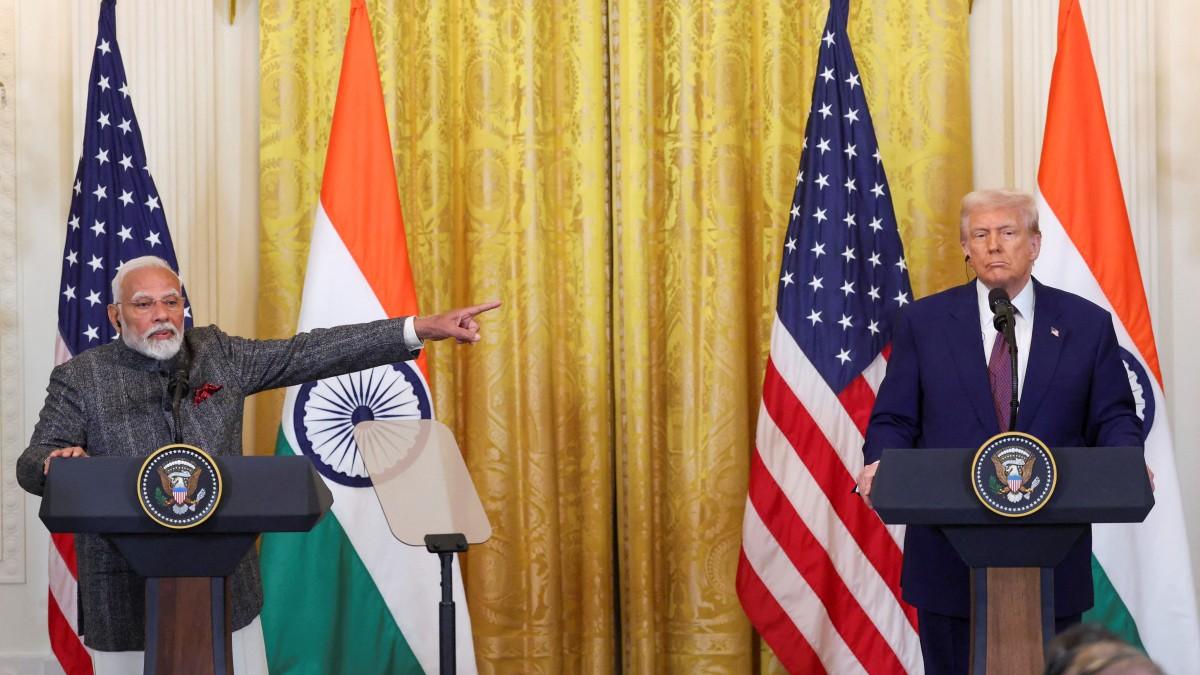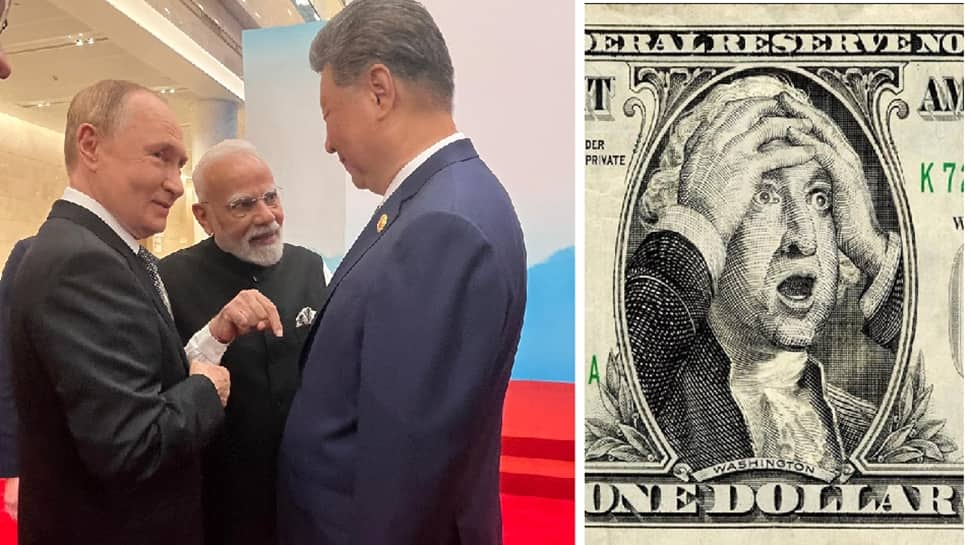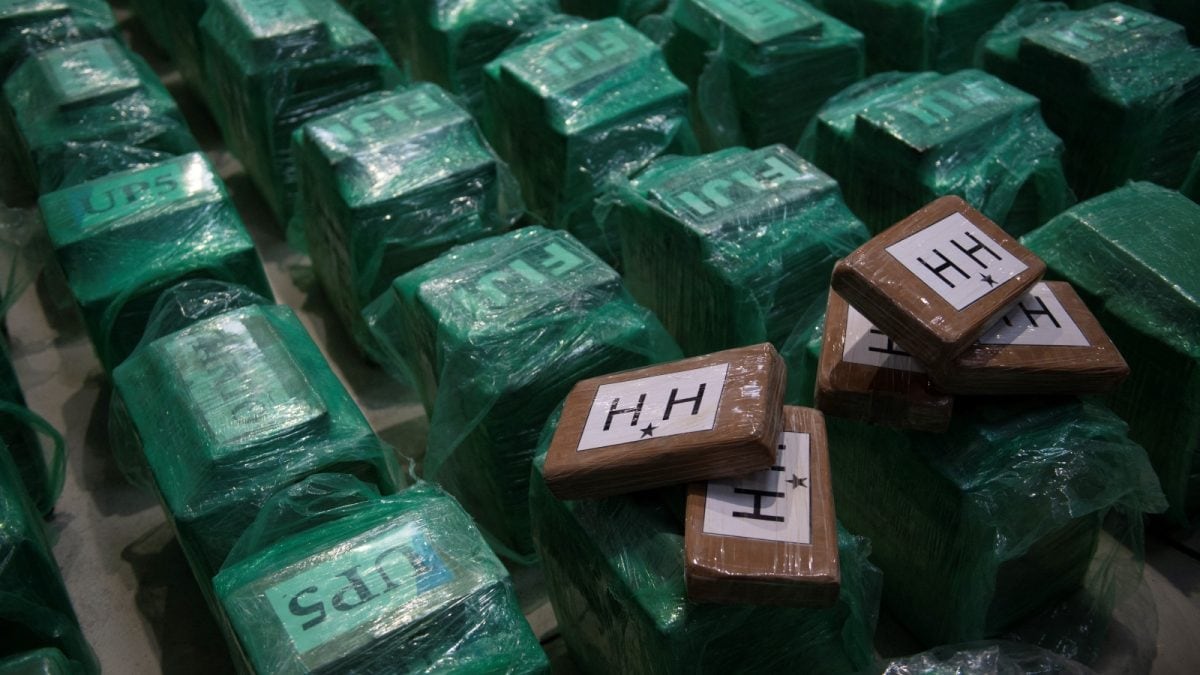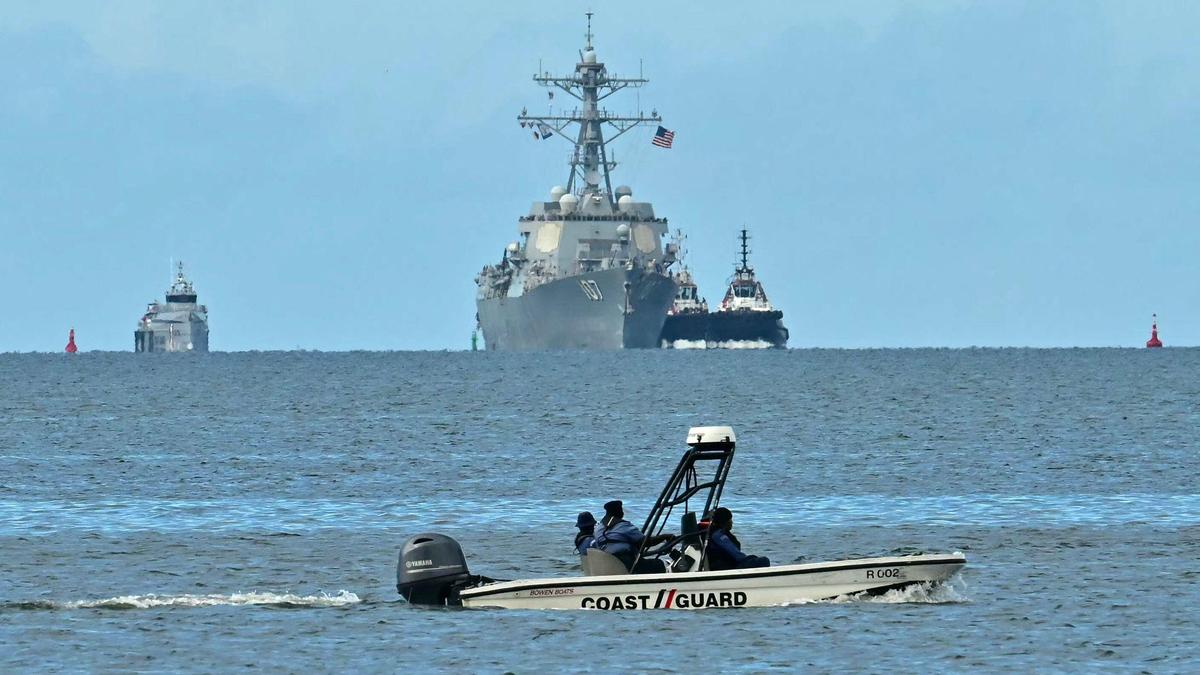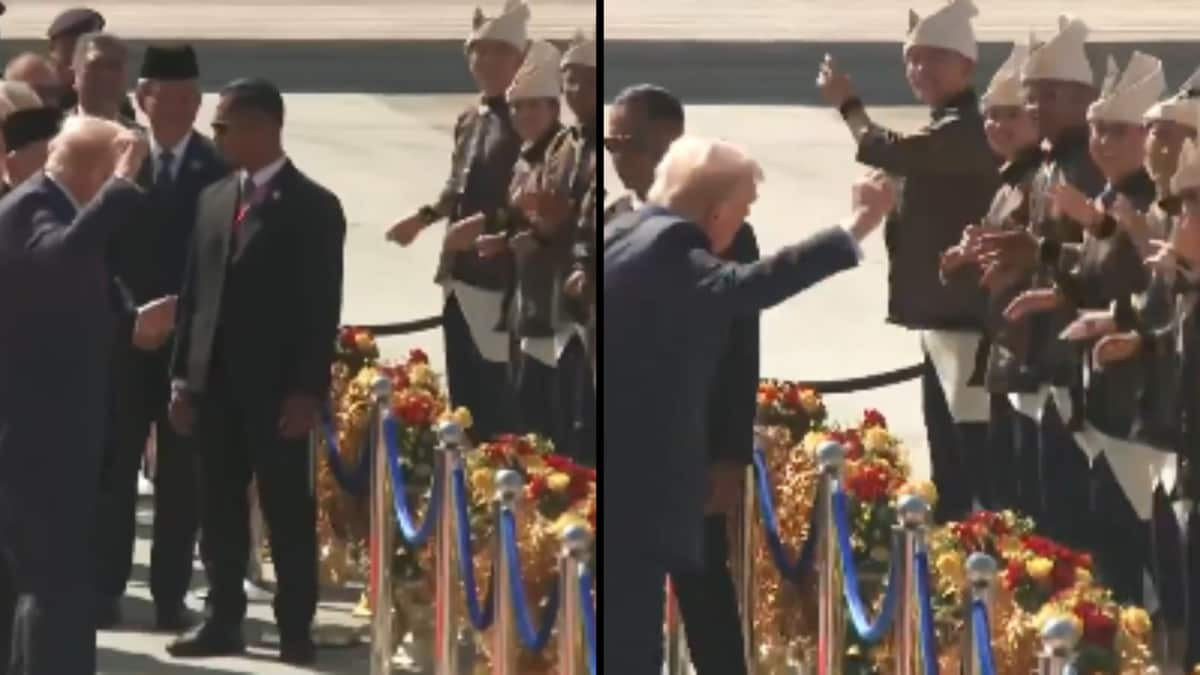Trump’s new rules for how countries should treat him have led to the current breakdown in India-US relations, explains Ambassador T P Sreenivasan.
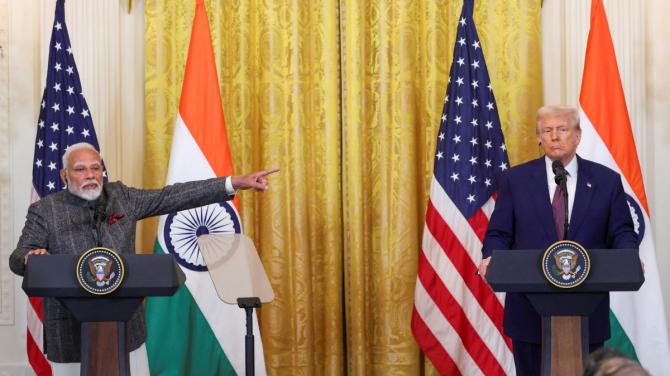
IMAGE: Prime Minister Narendra Modi and US President Donald Trump at the White House. Photograph: Reuters/ANI
A diplomat and author, Professor Dennis Kux called his analysis of India-US relations from 1941 to 1991 Estranged Democracies.
This was the period covering US presidents from Franklin Delano Roosevelt to George H W Bush. He told me that his next two books on the subject will be Engaged Democracies and Embracing Democracies.
In fact, India and the US passed through the two stages Kux had anticipated, engagement at the time of President Clinton and embrace during President Trump’s first term. Sadly, today, we are back to being estranged democracies.
The Trump-Modi bromance was at its height in the first months of Trump’s second term even after India’s ‘neutrality’ in the Russia-Ukraine war had become clear and it appeared for a while that an India-US-Russia axis was in the making to confront China.
When Modi visited the White House, the body language between them was like in the days of ‘Howdy Modi’ and ‘Namaste Trump’.
The tariff war was looming on the horizon, but still Trump agreed to resume negotiations on a limited trade agreement with India, which meant that threatened high tariffs would not apply to India.
India was all set to continue its embrace of Trump regardless of his unpredictability.
Even when the Pahalgam terrorist attack took place and India made it known that terrorism would be eliminated at all costs and proclaimed the new doctrine that terrorist acts will be treated as war, Trump did not show any sympathy with Pakistan. But unknown to the world, Trump was developing his own norms about his relationship with the world.
To be his friend, the countries concerned should recognise his peacemaking role and use his good offices to resolve conflicts.
Trump abandoned Russia when President Putin ignored every ultimatum he gave to end the Ukraine war.
Trump resumed the supply of missiles to Ukraine after having publicly urged Volodymyr Zelenskyy to compromise with Putin.
With Israel, he was patient, but appreciated Benjamin Netanyahu nominating him for the Nobel Prize for Peace establishing a precedent for other aspiring friends of Trump to follow.
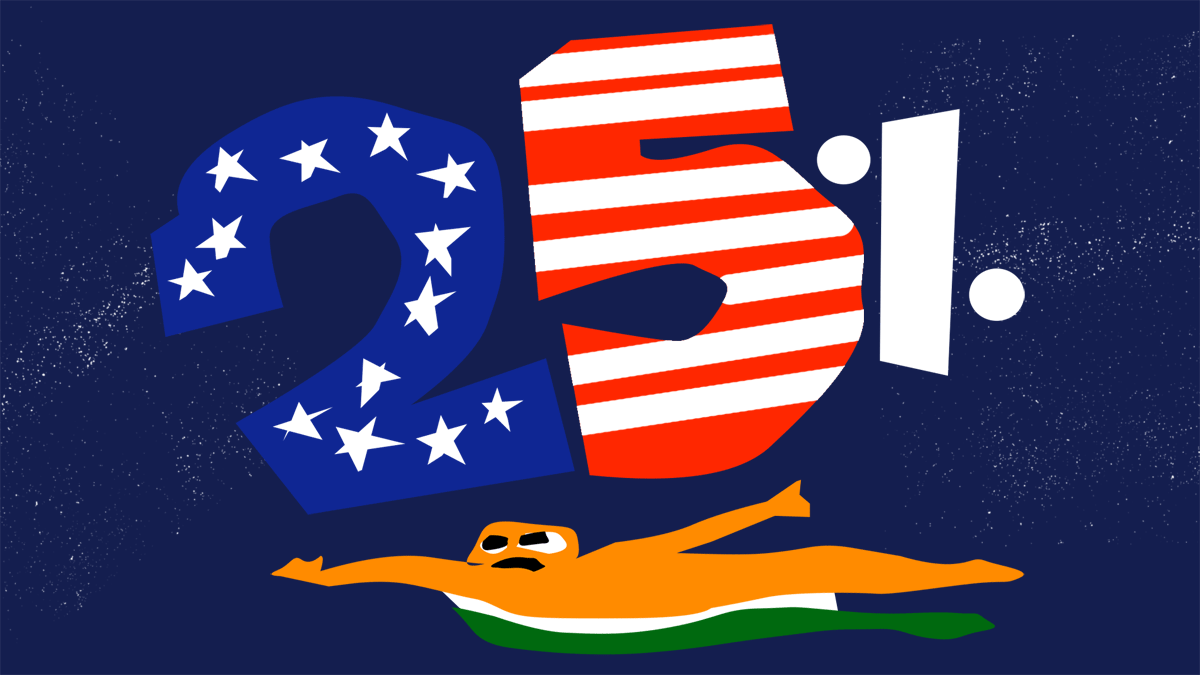
Illustration: Dominic Xavier/Rediff
When Operation Sindoor started in all its fury, the US initially took the line that the India-Pakistan conflict was none of its business, but Trump saw in it an opportunity to try out his new norm for his admirers.
No doubt, India and the US were in touch with each other through diplomatic channels and the conversations must have centered around the conflict and the way to end it.
When Pakistan resorted to an approach to Trump to end the conflict, he saw in it an opportunity to assume the role of peacemaker and get recommendations from India and Pakistan for a Nobel honour.
India, not having noted Trump’s new norm, neither acknowledged that Trump had mediated, as it is our principled position, nor did we think of nominating him for the Nobel Peace Prize.
Trump may have been banking on the several telephone calls that his vice president made to Modi, who did not respond initially.
When Modi finally picked up the call, he took it as a warning that Pakistan might escalate the war and not as a call for peace.
Trump had reason to think that he advised his friend to stop the war and Modi was honest in saying that he was not approached by any world leader to end the war with Pakistan.
If only India had given Trump credit for ending Operation Sindoor and nominated Trump for the Nobel Prize, there would have been no tariff war, particularly if India was more flexible on agricultural goods in the trade negotiations.

Photograph: Leah Milli/Reuters
Pakistan, having followed the new norm that Trump should be nominated for the Nobel Peace prize, it earned Trump’s affection and was designated the strongest partner in fighting terrorism and its chief of army staff, Field Marshal Asim Munir, was invited to lunch at the White House as a special gesture.
India and the US became estranged democracies once again and India became the victim of the new norm for adversaries, namely 25% tariff and unspecified penalty tariff for importing oil from Russia.
Trump also made the discovery that India was a member of the ‘anti-dollar’ alliance called BRICS.
The grouping was the brain child of an American economist, Jim O’Neill, who suggested that the rapidly growing economies of Brazil, Russia, India and China should work together to have a significant impact on the global economy in the coming decades.
It was China’s prominent position by hosting the BRICS in Beijing and pushing its proposal for BRICS to have its own currency that angered Trump.
There was probably another provocation for Trump. India sent a special envoy to Washington in the aftermath of Operation Sindoor, who had publicly criticised Trump as lacking in gravitas and wisdom, compared to the other US presidents and that his personal manner struck him as not entirely as agreeable or pleasant as one would like to see in a distinguished American political figure.
President Trump is not in the habit of forgiving or forgetting such comments about him.

Illustration: Dominic Xavier/Rediff
As of now, the engagement we had with the US after ‘the nuclear winter’ of 1998, following our nuclear tests and the subsequent India-US Agreement on Civilian Nuclear Cooperation and the Trump-Modi friendship before Operation Sindoor do not appear to move in the direction of the two countries becoming ’embracing democracies’.
The US seems to have opted for Pakistan’s military leadership to be its ally and India has been relegated to the status of an importer of oil from Pakistan, which may not even exist!
The situation today is reminiscent of May 1998 soon after our nuclear tests. Clinton came down on India like a ton of bricks and demanded immediate signature on the Comprehensive Test Ban Treaty.
He told us that he was going to Europe and he would impose the Glenn Amendment sanctions on arrival in Europe if India did not sign the CTBT by then.
We did not give a reply and he signed the sanctions order without even ascertaining what the Glenn Amendment would do to bilateral relations.
The US maintained that there was nothing to discuss with India and that India’s guilt was established and only the method of punishment was to be determined.
It took us two years of sustained dialogue between Jaswant Singh and Strobe Talbot to get the sanctions lifted and that too at the insistence of the business lobbies in the US.
But eventually, a new symphony came into India-US relations, true to the roller coaster ride reputation of India-US relations.
The weaponisation of trade will undermine the world economic order, but Trump takes pride in the fact that he has become a messiah of peace by replacing shooting wars with the more humane trade sanctions.
That alone may qualify him for a Nobel and India will have to deal with a peacemaker.
The new norms that Trump has developed for his friends to follow have caused the present impasse. Unless those norms change, the two cannot become embracing democracies.
Ambassador T P Sreenivasan is a long-time contributor to Rediff.
You can read his earlier columns here.
Feature Presentation: Rajesh Alva/Rediff


